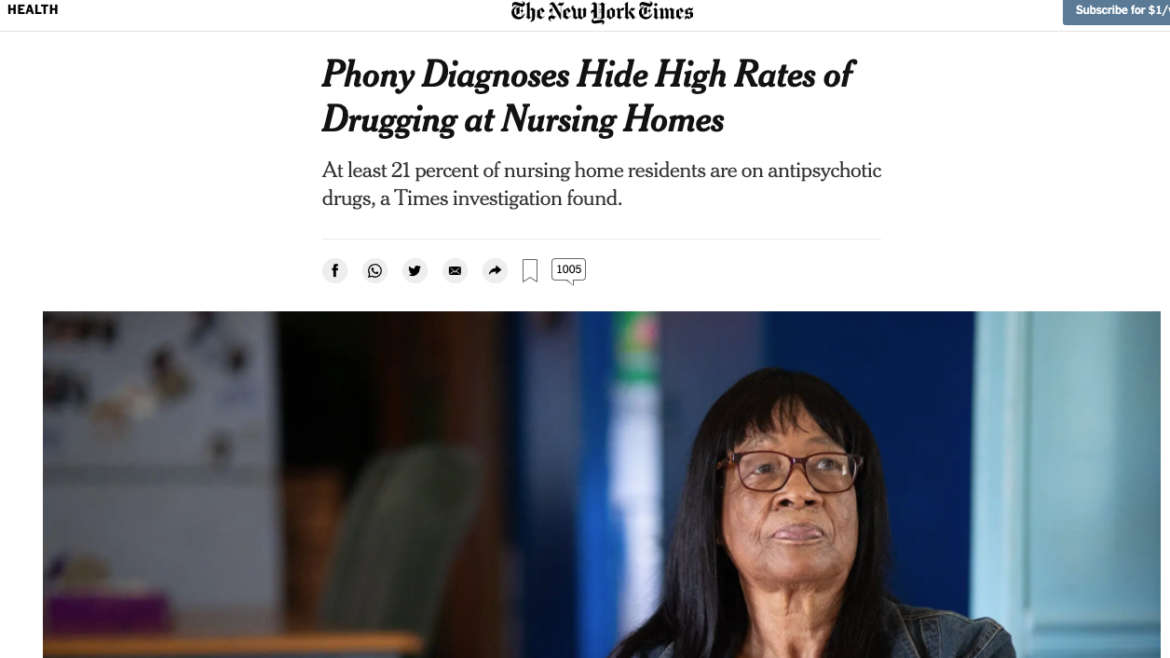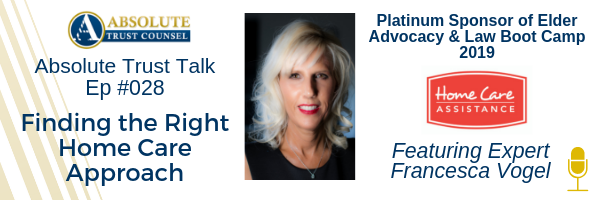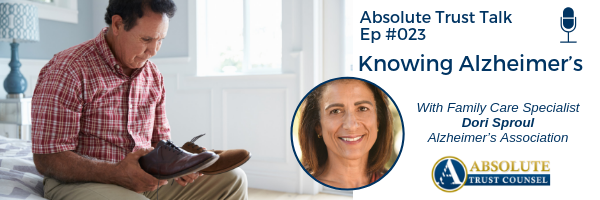In 1987, President Reagan signed a ban on the use of drugs in nursing homes that were prescribed to chemically restrain patients, unless the medications are needed for that patient or other residents’ safety. However, in September 2021, the New York Times has reported that antipsychotic drugs were frequently used on dementia patients in the 2000s, notwithstanding the almost doubled risk of death for dementia patients due to increased drowsiness and subsequent fall risks.
The New York Times’ report stated that the more understaffed a nursing home is, the more likely the nursing home is to use antipsychotic drugs to subdue patients. This has been exacerbated by the pandemic and the subsequent shortage of nursing home employees. The New York Times also discovered that even though nursing homes are required to report the use of antipsychotic drugs in their facilities, they are not required to report if the drugs are being used to treat schizophrenia, Tourette’s syndrome, or Huntington’s disease. This has led to a dramatic increase in diagnoses of schizophrenia in nursing home patients, even though most people are diagnosed before the age of 40.
In addition, a federal oversight agency report in May 2021 found that upon review of Medicare records, approximately one-third of nursing home residents that had a schizophrenia diagnosis in 2018 did not have any history of being treated for the disease. This type of data would indicate that nursing homes are creating a diagnosis to skirt the rules against using antipsychotic drugs in an off-label manner, such as a chemical restraint. The New York Times also found that nursing homes are rarely punished for these diagnoses or skewed data regarding antipsychotic drug prescriptions. Instead, the facilities explain away the findings of the government inspectors by stating that the drugs were used for other health issues or because patients were “asking for help.”
The New York Times discovered that some nursing homes have turned to a new drug to help subdue patients, one that is not classified as an antipsychotic. Depakote, an epilepsy and bipolar disorder medication, has seen a much higher prescription rate in nursing homes than the actual amount of reported epileptic patients. Similar to antipsychotics, Depakote also increases drowsiness and fall risks among the elderly. A federal whistleblower lawsuit against Abbott Laboratories, the former manufacturer of Depakote, indicated that Abbott’s sales representatives told nursing homes that Depakote was a straightforward way to get around the 1987 ban on drugs being used as chemical restraints because the medication would “fly under the radar screen” of government regulations. That suit was settled, with Abbot paying out $1.5 billion. California Advocates for Nursing Home Reform (“CANHR”) states that half of the complaints they get are regarding nursing home residents being drugged with Depakote inappropriately. According to the New York Times, the government does not currently require nursing homes to report their use of Depakote or other similar drugs.
If you have a family member who resides in a nursing home, pay attention to their care, take an active role, ask many questions, and make sure that someone is assigned as their health care agent to make decisions for them when they are no longer able. If you are concerned about overprescribing medication or off-label uses of prescriptions, don’t hesitate to get in touch with your local ombudsman or an elder law attorney.
[Ad] Calling all neighbors in the Walnut Creek area and beyond! At Absolute Trust Counsel, we understand how unique the needs of your family can be. When it comes to planning for your family’s legacy, there is no one-size-fits-all approach. Schedule a free discovery call,and let’s talk about how we can help build the right plan for your family’s circumstances. Or, if you have a question about the content in this blog, please feel free to get in touch with us by calling 925.943.2740 or sending an email to Info@AbsoluteTrustCounsel.com.
Looking for more information on probate? Visit our probate resource page at https://absolutetrustcounsel.com/practice-areas/probate/ for guidebooks, podcasts, videos, and more!



